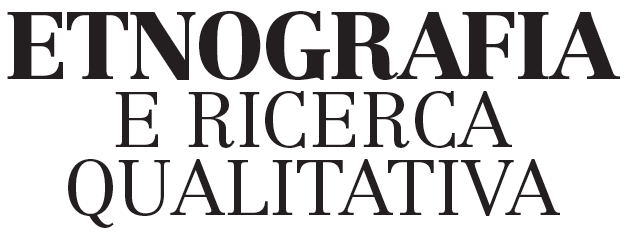“This is not a conference, it’s a feast!”, once said a participant.
Join us in celebrating a shared ethnographic passion!
In 2025, the journal Etnografia e Ricerca Qualitativa (ERQ) and the University of Trento will host the 10th Edition of the Conference on ethnographic research consolidating the rich intellectual discussion spurred by previous editions.
Ethnography is increasingly recognised and practiced as a crucial research method across a range of social sciences, and beyond. In fact, more than a method, ethnography could be said to entail a whole philosophy of social research and a special sensitivity to the social worlds in which people live. In this sense, it also provides a bridge to the wider universe of qualitative enquiry and its various – and varied – applications that have since long breached the boundaries of the social sciences and humanities.
Since 2006, the Ethnography and Qualitative Research Conference, held in Bergamo for its first seven editions, has become an increasingly recognised and established scientific meeting for social researchers. Organised every two years, the conference has grown both in terms of numbers (the 2023 edition brought together almost 600 scholars) and international impact (half the participants came from outside Italy). Each edition features keynote speakers, thematic sessions and side events.
The Conference embraces and endorses a broad, ambitious view of ethnographic and qualitative research.
Contributions can be based on a variety of methods, including participant observation, in-depth interviews, focus groups, video-based field studies, auto-ethnography, visual ethnography, discourse studies, and other forms of inquiry inspired and informed by an ethnographic sensibility.
Empirically grounded, theoretically informed, and methodologically sound proposals that contribute to the substantive knowledge of the social world and contemporary emerging phenomena are particularly valued.
The Conference format is based on 3-hour sessions, with 5 to 6 paper presentations per session, leaving as much room as possible for debate and discussion.
The aims of the Conference include:
- fostering scholarly exchange and facilitate research collaborations among senior and junior scholars based in different universities and research centres in Europe and abroad;
- supporting the dissemination of fresh, original, and timely research;
- encouraging PhD students at different stages of their research career to share and present preliminary findings and fieldwork experience;
- welcoming graduate and undergraduate students as audience to the conference and active participants in the discussion.

Our icon this year is
GIOVANNA MARINI
Scientific Committee
Chiara Bassetti, University of Trento
chiara.bassetti@unitn.it
Elena Bougleux, University of Bergamo
elena.bougleux@unibg.it
Andrea Mubi Brighenti, University of Trento
andrea.brighenti@unitn.it
Sebastiano Citroni, University of Insubria
sebastiano.citroni@uninsubria.it
Nick Dines, University of Milano Bicocca
nicholas.dines@unimib.it
Giolo Fele, University of Trento
giolo.fele@unitn.it
Elena Fontanari, University of Milano
elena.fontanari@unimi.it
Paola Gandolfi, University of Bergamo
paola.gandolfi@unibg.it
Pier Paolo Giglioli, University of Bologna
ppgiglioli@gmail.com
Alberta Giorgi, University of Bergamo
alberta.giorgi@unibg.it
Marco Marzano, University of Bergamo
marco.marzano@unibg.it
Cristina Mattiucci, University of Napoli “Federico II”
cristina.mattiucci@unina.it
Gianmarco Navarini, University of Milano Bicocca
gianmarco.navarini@unimib.it
Francesca Pasquali, University of Bergamo
francesca.pasquali@unibg.it
Domenico Perrotta, University of Bergamo
domenico.perrotta@unibg.it
Federico Rahola, University of Genova
federico.rahola@unige.it
Timothy Rayermakers, University of Bologna
timothy.raeymaekers@unibo.it
Stefania Yapo, University of Trento
stefania.yapo@unitn.it
The Journal

Etnografia e Ricerca Qualitativa (Ethnography and Qualitative Research) is a peer-reviewed journal published three times a year by Il Mulino, Italy’s leading social science publishing house. The journal hosts high-quality original ethnographic and qualitative research that combines careful empirical observation with sound theoretical reflection. It covers traditional areas of ethnographic inquiry, such as urban ethnography, deviance, work and occupational communities, immigration and ethnic relations, but also promotes the ethnographic analysis of scientific practices and knowledge, information and surveillance systems, religion, politics, the media, sport, and the arts. ERQ is not committed to any specific theoretical approach, and is open to papers influenced by different theoretical traditions, provided they are based on rigorous field research. The journal is published in Italian, English, and French.